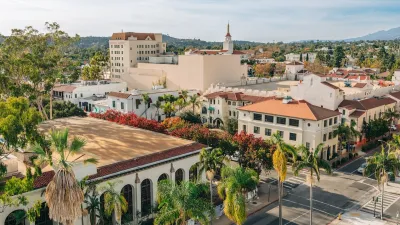Sarah Laskow reports on a new study by the Center for Neighborhood Technology (CNT) that seeks to rethink how affordable housing is defined to incorporate transportation costs.
An analysis by CNT of the Chicago region's affordable housing developments has found that some are not very affordable when transportation costs are considered.
Typical transportation costs, the second largest expense in a household budget, ranged from $750 per month in many Chicago neighborhoods with affordable housing units to more than $1,000 in more distant suburbs. The report also found that suburban Cook County, which has comparatively low transportation costs, has fewer affordable housing units compared with the city of Chicago and the region's collar counties.
"Transportation costs don't only bust the budgets of low-income households. As the price of gas rises, working- and middle-class families can find themselves in what the New America Foundation calls "the energy trap" - stuck with the high costs of car ownership and fuel. It's a particular problem for families that have moved out to the exurbs in search of more affordable housing without considering how much more they'll have to pay to reach their jobs or their grocery store."
According to Laskow, "Sustainability advocates often start with the premise that dense, transit-accessible community save energy. But start with saving money for individual households - savings that people might feel more connected to - and the end point is the same."
Thanks to Annette Stahelin
FULL STORY: Sustainable Development Makes Housing Affordable

Alabama: Trump Terminates Settlements for Black Communities Harmed By Raw Sewage
Trump deemed the landmark civil rights agreement “illegal DEI and environmental justice policy.”

Planetizen Federal Action Tracker
A weekly monitor of how Trump’s orders and actions are impacting planners and planning in America.

Why Should We Subsidize Public Transportation?
Many public transit agencies face financial stress due to rising costs, declining fare revenue, and declining subsidies. Transit advocates must provide a strong business case for increasing public transit funding.

‘Clybourne Park’ Sets Stage for Housing Equity Discussions
Clybourne Park, a play exploring race, real estate, and community tensions, can set the stage for discussion on the lasting impacts of housing discrimination, gentrification, and the fight for affordability.

Understanding Road Diets
An explainer from Momentum highlights the advantages of reducing vehicle lanes in favor of more bike, transit, and pedestrian infrastructure.

New California Law Regulates Warehouse Pollution
A new law tightens building and emissions regulations for large distribution warehouses to mitigate air pollution and traffic in surrounding communities.
Urban Design for Planners 1: Software Tools
This six-course series explores essential urban design concepts using open source software and equips planners with the tools they need to participate fully in the urban design process.
Planning for Universal Design
Learn the tools for implementing Universal Design in planning regulations.
Caltrans
Smith Gee Studio
Institute for Housing and Urban Development Studies (IHS)
City of Grandview
Harvard GSD Executive Education
Toledo-Lucas County Plan Commissions
Salt Lake City
NYU Wagner Graduate School of Public Service





























